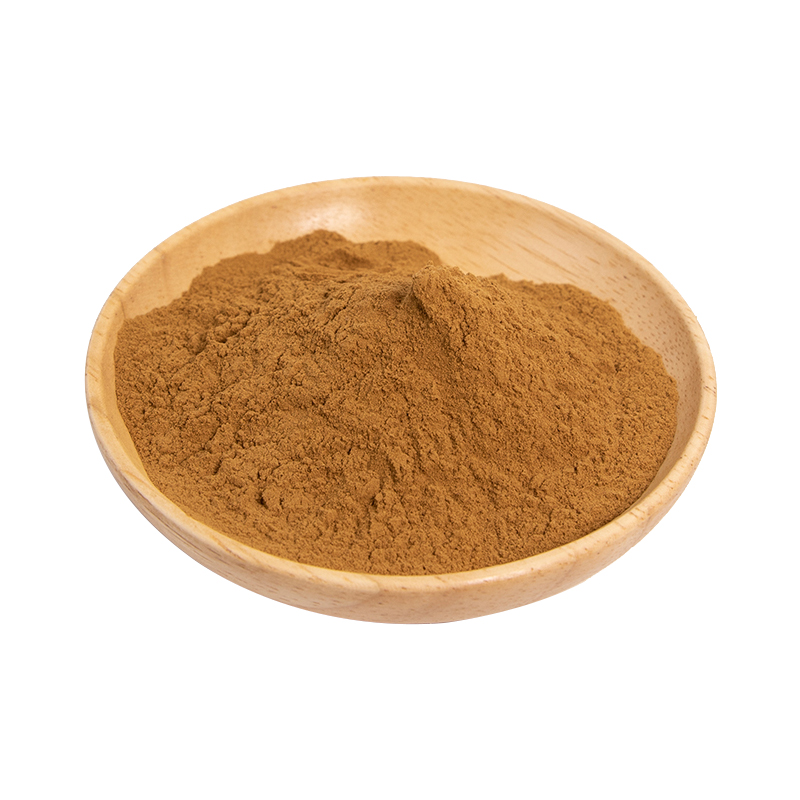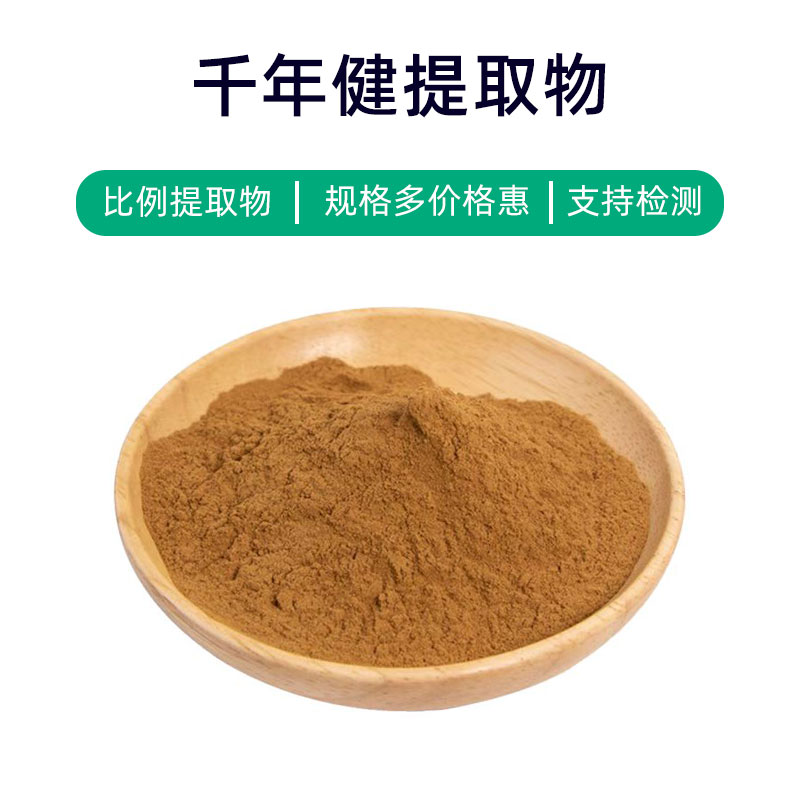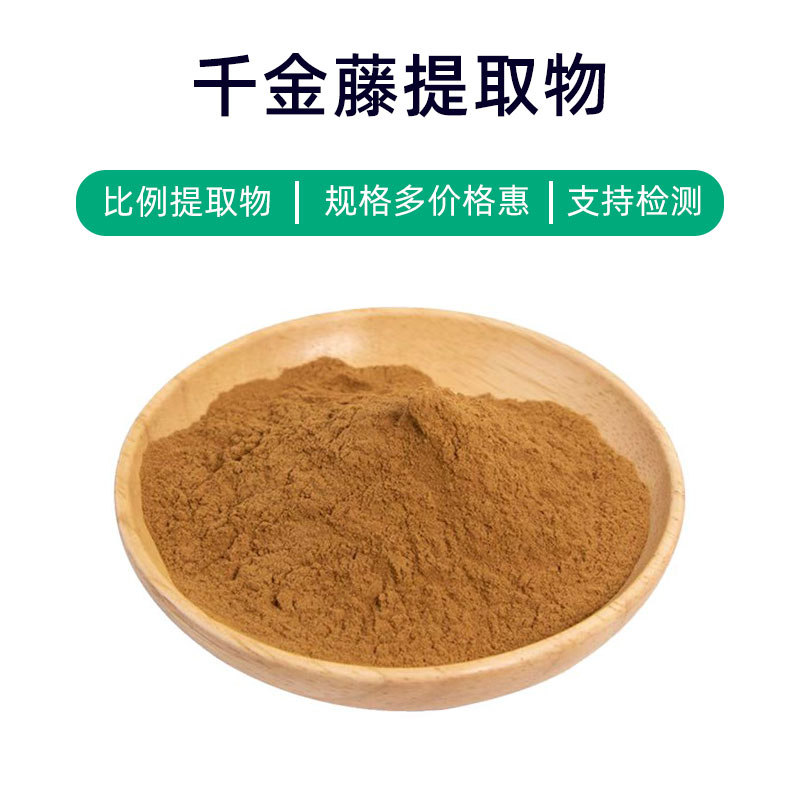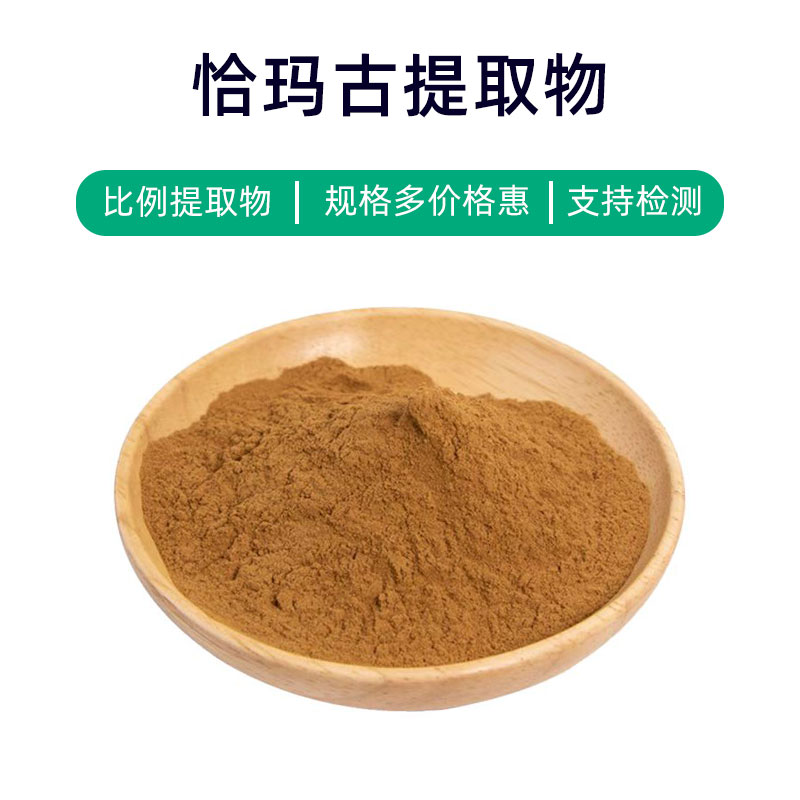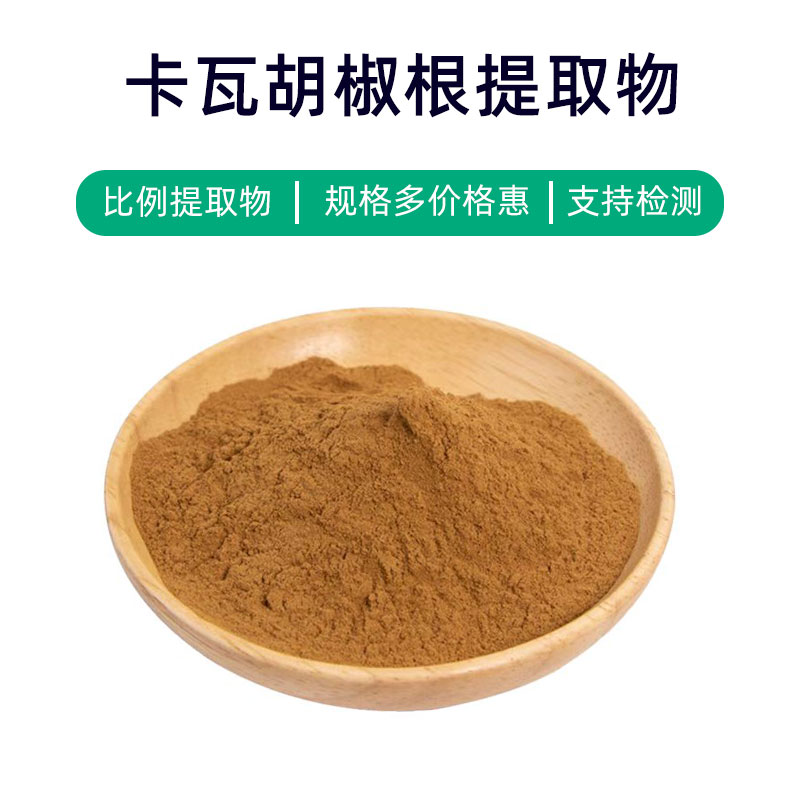Brazilian Rosewood Extract Product Introduction
Brazilian rosewood extract is a natural plant extract derived from the Brazilian rosewood tree (Dalbergia nigra), containing main components such as diterpenes, flavonoids, tannins, and volatile oils. These components impart various benefits to the extract, including antioxidant, anti-inflammatory, skin brightening, and anti-aging properties. In cosmetics and skincare products, Brazilian rosewood extract is commonly used in products like creams, serums, and masks to combat free radical damage, improve skin elasticity, reduce pigmentation, and enhance skin radiance. Additionally, it can be incorporated as part of health supplements to regulate body functions and boost immunity.
Brazilian Rosewood Extract Production Process
The production process of Brazilian rosewood extract typically involves the following steps:
- Raw Material Preparation: Select high-quality Brazilian rosewood as the extraction material to ensure freshness and quality.
- Grinding and Crushing: Grind the Brazilian rosewood wood to the appropriate particle size to enhance extraction efficiency.
- Solvent Extraction: Soak the ground wood in suitable solvents (such as ethanol or water) to extract the active components.
- Concentration of Extract: Concentrate the extracted solution to remove excess solvents, obtaining a concentrated extract.
- Filtration and Clarification: Filter and clarify the concentrated extract to remove impurities and suspended particles, ensuring purity.
- Solvent Recovery: Regenerate the solvent-free extract for reuse to improve production efficiency.
- Drying and Grinding: Dry the clarified extract to obtain a solid extract, then grind to achieve the desired particle size.
- Packaging and Storage: Package the Brazilian rosewood extract and store it under appropriate conditions to maintain product quality and stability.
These are the typical production processes for Brazilian rosewood extract, with each step rigorously controlled to ensure product quality and safety.
Brazilian Rosewood Extract Efficacy and Side Effects
Brazilian rosewood extract is a plant extract with rich medicinal value, offering various benefits and effects, including:
- Antioxidant Effect: Brazilian rosewood extract contains natural antioxidants like polyphenolic compounds and flavonoids, effectively scavenging free radicals to slow cell oxidation and protect cell health.
- Anti-inflammatory Effect: Research indicates that Brazilian rosewood extract exhibits significant anti-inflammatory properties, inhibiting the release of inflammatory factors and reducing inflammation, showing therapeutic potential for inflammatory conditions.
- Immune Regulation: Brazilian rosewood extract contains various bioactive components that regulate immune system function, enhancing immunity, improving resistance, and preventing infections and diseases.
- Antimicrobial Effect: Active components in Brazilian rosewood extract possess antimicrobial properties, inhibiting the growth and reproduction of bacteria, fungi, and viruses, aiding in the prevention and treatment of related infectious diseases.
- Cardiovascular Health Protection: Studies demonstrate that Brazilian rosewood extract offers cardiovascular system protection, lowering blood pressure, improving lipid metabolism, and preventing cardiovascular diseases.
- Antitumor Effect: Certain compounds in Brazilian rosewood extract show antitumor activity, inhibiting the growth and spread of tumor cells, exerting inhibitory effects on certain tumors.
- Digestive Function Promotion: Brazilian rosewood extract, rich in dietary fiber and enzymes, promotes digestive fluid secretion, enhances intestinal motility, improves digestion, and prevents digestive disorders.
While Brazilian rosewood extract offers numerous benefits, caution should be exercised for possible side effects. Some individuals may be allergic to the extract, leading to allergic reactions. Therefore, a skin sensitivity test is recommended before use. Additionally, prolonged or excessive use may cause digestive issues or intestinal discomfort. Hence, when using Brazilian rosewood extract, moderation and adherence to medical advice are essential to prevent adverse reactions.
Applications and Usage of Brazilian Virola Extract
Medical Applications:
- Traditionally used in herbal medicine to treat digestive issues and gastrointestinal inflammation.
- In modern medicine, studied for potential benefits in managing cardiovascular conditions like hypertension and high cholesterol.
- Used in traditional Chinese medicine as a kidney tonic to address male sexual dysfunction and kidney deficiencies.
Food Applications:
- Frequently added to health foods for boosting immunity, improving digestion, and promoting overall wellness.
- Used as a food additive to enhance nutritional value and flavor, incorporated into items such as cookies, granola bars, and energy bars.
Cosmetic Applications:
- Valued for its antioxidant and anti-inflammatory properties, commonly included in anti-aging skincare products.
- Effective in acne treatment formulations, helping reduce blemishes and inflammation while improving skin condition.
- Incorporated into hair care products like shampoos and conditioners to support scalp health and promote hair growth.
Usage and Dosage:
- Medical Use: Often consumed as an herbal decoction or oral extract, following medical guidance.
- Food Additive: Added in quantities that comply with food production standards, typically below regulatory maximums.
- Cosmetic Use: Added in formulations at concentrations between 1% and 5%, depending on the product.
Brazilian Virola Extract is a versatile natural product with wide-ranging applications. Proper dosage and usage tailored to specific needs ensure safety and effectiveness.
Introduction, Distribution, and Growth Environment of the Brazilian Virola Tree
Plant Introduction:
- A tall tropical tree reaching over 25 meters, with a dense crown and smooth gray-brown bark.
- Leaves are elliptical or ovate, leathery, and alternately arranged, with reddish-brown hairs on the underside.
- Produces small, fragrant green flowers in axillary or terminal panicle clusters.
- Fruits are elliptical nuts with smooth surfaces, maturing to red or orange-yellow, containing hard seeds encased in firm flesh.
Distribution:
- Native to the Amazon rainforest, predominantly in Brazil, Peru, Venezuela, and Colombia.
- Typically found in tropical rainforest regions below 200 meters in elevation, thriving in humid climates with fertile soils.
Growth Environment:
- Prefers warm, moist tropical rainforests with abundant rainfall.
- Grows in areas with average annual temperatures above 20°C, with winter lows around 15°C and summer highs near 30°C.
- Thrives in fertile sandy or clay loams with good drainage and moderate moisture levels.
These environmental conditions allow the Brazilian Virola tree to flourish, forming dense forest ecosystems that provide critical habitats for wildlife.
Processing and Storage of Brazilian Virola Extract
Processing Steps:
- Collect mature Brazilian Virola fruits.
- Remove the skin and seeds, then dry or dehydrate the fruit.
- Pulverize or grind the treated fruit for efficient extraction.
- Use methods such as solvent extraction or supercritical fluid extraction to isolate active compounds.
- Filter, concentrate, and dry the extract to obtain the final product.
Storage Guidelines:
- Store in a cool, dry, and ventilated area, avoiding direct sunlight and high temperatures.
- Use sealed containers to protect the extract from moisture and air exposure.
- Maintain cleanliness and avoid contact with harmful substances. Stabilizers or additives may be used to extend shelf life based on the extract’s properties.
These precautions ensure the stability and quality of Brazilian Virola Extract during storage and usage.
Monica Sun is a seasoned expert in the plant extraction industry with over a decade of experience in research and production. She specializes in the extraction and purification of plant active ingredients, focusing on driving innovation in natural product applications. Monica has participated in the development of multiple functional plant extracts, delivering high-value natural raw material solutions for the health food, pharmaceutical, and dietary supplement sectors.









